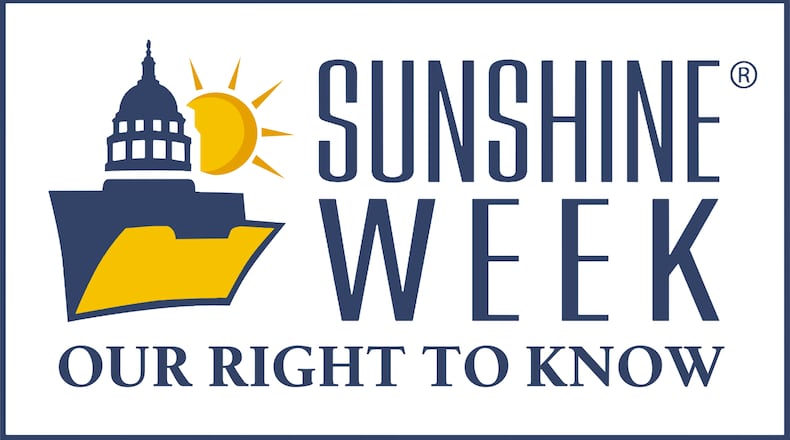Panelists include:
- Kate Bostdorff, Communications Director for the City of Centerville
- Julio Mateo, government transparency activist
- Josh Sweigart, Investigations Editor for the Dayton Daily News
Nick Hrkman, Community Impact Editor for the Dayton Daily News, is the moderator.
Sunshine Week is a nonpartisan collaboration among groups in the journalism, civic, education, government and private sectors that shines a light on the importance of public records and open government. This year, Sunshine Week runs from March 16 through March 22.
Below are some highlights from the discussion, edited for brevity and clarity. You can watch the full panel discussion on our website or YouTube channel: youtube.com/@TheDaytonDailyNews.
Josh Sweigart
Every government under Ohio law has to have a records retention policy that says how long they hold on to records. It’s a menu, basically. If you can get a government’s records retention policy that actually lists all the different kinds of records that they have — we refer to that as ordering off the menu. If you’re not sure exactly how a government keeps their records, you can request their records retention policy, which is an actual record and breaks down of all the different kinds of records they have. So you’re not just shooting in the dark. A big problem is ‘I want this information, I don’t know exactly how it’s captured in that government' and so sometimes you have to go on a fishing expedition because you don’t know what records they have to ask for.
Julio Mateo
A lot of these laws were created when when documents were stored on paper in a cabinet. Now a lot of those are stored online. There is a way to create a mechanism to make them available. I would like to see more push notifications, for example. When we did the surveillance ordinance in the City of Dayton, people could sign up to receive notifications about the ordinance. So instead of pulling the information and having to monitor when things are released, you can sign up and get it sent to you and everybody who signed up for the list can get it sent. You can use Google Alerts that allow you to watch a given word and then whenever something comes up that relates to that word it gets sent to you. I understand that things need to be vetted in public records before they get released, but especially when they are regularly created things like audits and memos, things like that could be made more readily accessible.
Kate Bostdorff
With my background as a journalist, I certainly approach most of these issues biased toward transparency and being able to get records, but video record requests have become a big problem. Centerville doesn’t get a lot of high-profile cases, but I’ve talked to our dispatchers and our record specialists. As an example, say we get a domestic violence call. There are four officers at the scene, and let’s say it’s a one-hour call. It takes five hours to edit one hour of one officer’s body cam. So for four officers, five hours, you’re talking about hours and hours of video editing time. That means city staff are not doing anything else during that time. The rules for redacting children adds a whole other layer and really slows this down. It just takes an enormous amount of time. And it’s often for entertainment or profit. In Centerville they estimate more than 80% of the requests we get are what we call ‘ambulance chasers’ or YouTubers. It is not reporters and family members associated with these cases.
